|
Unification of the two Koreas is vital for establishing a peaceful and prosperous future for East Asia. Today, North Korea’s nuclear development and continuous provocations pose threats to national interests of not only South Korea, but also neighboring countries. In order to prepare for the unforeseeable future surrounding the unification amidst changing architecture across the security, economic, and socio-cultural realms, South Korea needs to cooperate closely with its neighbors and seek multilateral efforts to resolve the North Korean problem, based on South Korea’s clear vision for unification.
In light of this, Monday, the Ministry of Foreign Affairs and East Asia Institute (EAI) co-organized an international conference under the title of “Korea’s Vision for Unification and the Future of East Asia” on Monday, June 9. Policy experts and scholars from the United States, China, Russia, Germany, and Japan gathered to discuss the implications of the Korean unification on the future of East Asia and ways to promote South Korea’s vision for unification.
|
|
09:30-10:00
|
Registration
|
|
10:00-10:10
|
Opening Remarks LEE Sook-Jong, President, EAI
|
|
10:10-10:30
|
Keynote Speech
YUN Byung-se, Minister, Ministry of Foreign Affairs, South Korea
|
|
10:40-12:20
|
Session 1: The Dresden Declaration and Korea’s Vision
for Unification Diplomacy
Moderator
SHIN Bong-kil, President, Institute of Foreign Affairs and National Security (IFANS),
Korea National Diplomatic Academy
Presenters
"Korea's Unification Diplomacy Strategy”
CHUN Chaesung, Professor, Seoul National University
"Germany’s Unification Diplomacy"
Hanns Günther HILPERT, Senior Associate, German Institute for
International and Security Affairs (SWP)
Discussants
Peter BECK, Korea Representative, Asia Foundation
Alexander FEDOROVSKIY, Professor, Institute of World Economy and
International Relations (IMEMO)
JIN Canrong, Professor, Renmin University of China
SHEEN, Seong-Ho, Professor, Seoul National University
TANAKA Hitoshi, Former Deputy Minister, Ministry of Foreign Affairs, Japan;
Chairman, Institute for International Strategy, Japan Research Institute (JRI)
|
12:20-13:30
|
Lunch
|
13:30-15:10
|
Session 2: A Unified Korean Peninsula and the Future of East Asia
Moderator
HA Young-Sun, Chairman, EAI
Presenters
"A Unified Korean Peninsula: United States' Perspective"
Peter BECK, Korea Representative, Asia Foundation
"A Unified Korean Peninsula: China's Perspective"
JIN Canrong, Professor, Renmin University of China
"A Unified Korean Peninsula and Future of East Asia: A Japanese Perspective"
TANAKA Hitoshi, Former Deputy Minister, Ministry of Foreign Affairs, Japan;
Chairman, Institute for International Strategy, JRI
"Unified Korea and Russia's priorities in East Asia"
Alexander FEDOROVSKIY, Professor, IMEMO
Discussants
CHUN Chaesung, Professor, Seoul National University
LEE Chung Min, Ambassador for National Security Affairs, South Korea;
Professor, Yonsei University
Hanns Günther HILPERT, Senior Associate, SWP |
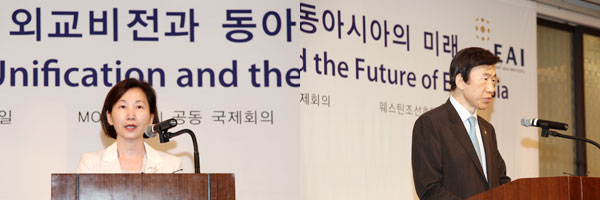
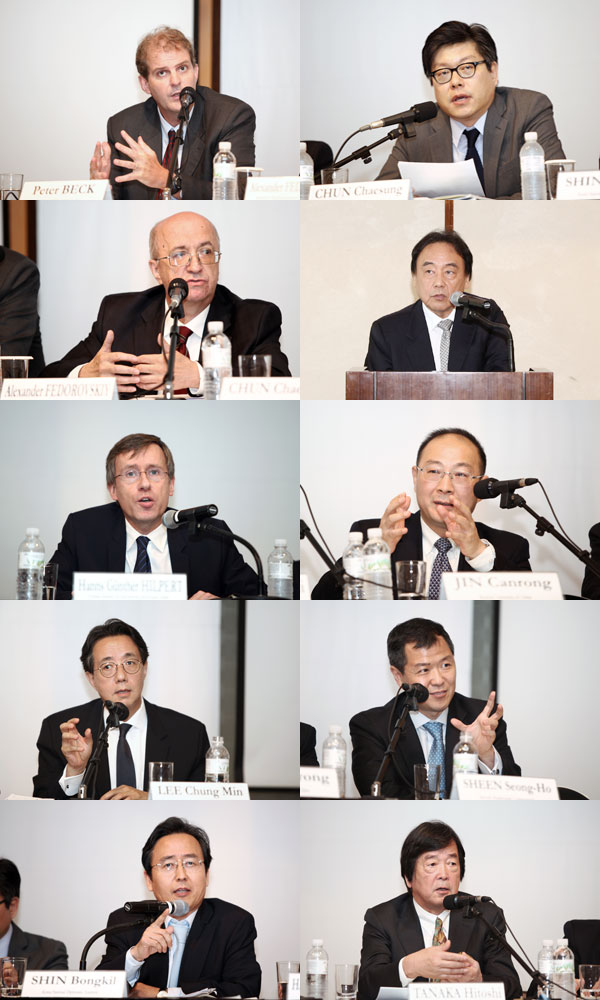
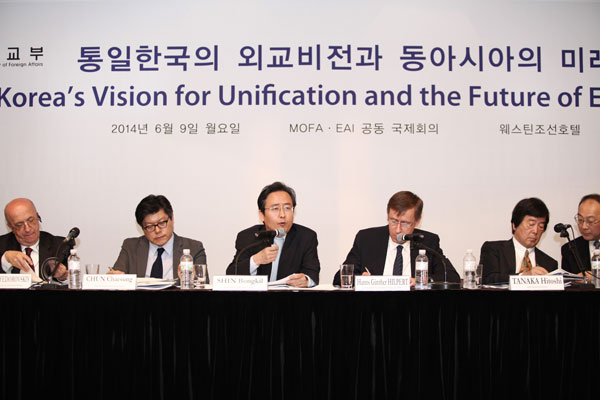
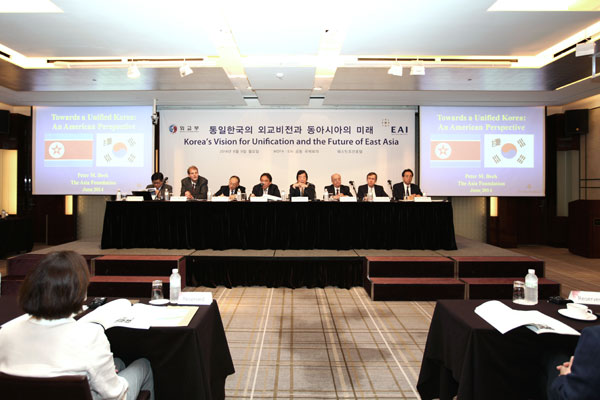
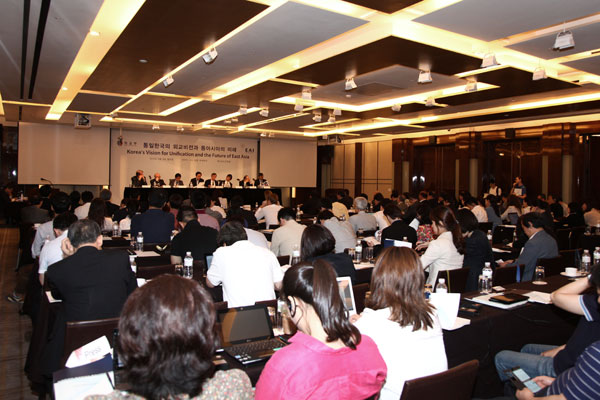
|
|




